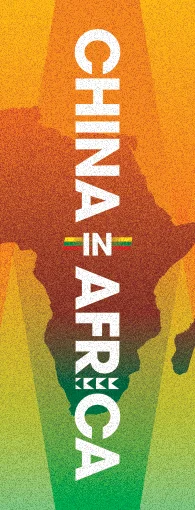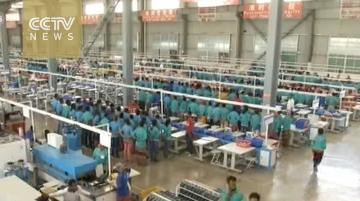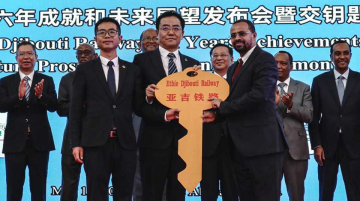
Ethiopia stands out from other African countries for its ability to attract Chinese companies to open factories there. Through a combination of tax incentives, industrial parks, and its strategic location, Ethiopia is outpacing pretty much every other African country in luring light manufacturing companies to set up shop.
But in a country that still lacks a government-set minimum wage, there are widespread complaints that Chinese companies there pay too little and don’t employ enough local workers.
While those perceptions may be widely-held, they’re not supported by the data, according to Weiwei Chen, a PhD candidate at the School of Oriental and African Studies at the University of London and a PhD Fellow at UNU-Wider, a United Nations think tank in Helsinki.
Weiwei is an expert in Chinese investment in Ethiopia and worked with her SOAS University of London colleague, Professor Carlos Oya on a 2019 research report that explored Chinese hiring practices in both Ethiopia and Angola. Their findings echoed earlier research that refuted the stereotype that Chinese companies prefer to bring in their own workers rather than to hire locally.
In terms of job creation the project found that the proportion of national (Ethiopian and Angolan) workers in the labour force is substantially higher than usually assumed in media perceptions. In Ethiopia these rates were 90% of all workers (and 100% for low-skilled workers) and in Angola, where rates are usually much lower due to skill shortages, estimated rates were 74%.
July 2019 SOAS Research Report on Chinese Hiring Practices in Angola and Ethiopia
Weiwei joins Eric & Cobus to discuss her latest research on Chinese corporate engagement in Ethiopia and why she thinks there are still so many misperceptions about Chinese hiring practices.
Show Notes:
- School of Oriental and African Studies at the University of London: SOAS research challenges perceptions of Chinese firms’ labour practices in Africa by Carlos Oya
- Hong University of Science and Technology: Localizing Chinese Enterprises in Africa: from Myths to Policies by Barry Sautman and Yan Hairong
- CNN: Employed by China by Jenni Marsh

Weiwei’s academic interests include Chinese Small-Medium Enterprises’ (SME) internationalization, Chinese Migrant Entrepreneurs in Africa and Chinese Private Overseas Foreign Direct Investment (OFDI) in Sub-Saharan Africa (SSA). Prior to her PhD at SOAS, she worked for the United Nations Volunteers (UNV) in Germany and the Chinese Embassy in the UK. Weiwei has been working as a research assistant for the Principal Investigator, Dr. Carlos Oya in a 3-year international collaborative academic research project titled ‘Chinese Firms and Employment Dynamics in Sub-Saharan Africa: A Comparative Analysis’, funded by the Department for International Development (DFID) and Economic Social Research Council (ESRC). She has been conducting fieldwork in both Angola and Ethiopia since 2015. Research undertaken so far has led to a deep understanding of the ecosystem and the way that Chinese firms operate in SSA.
Weiwei was the National Research Consultant for the Partnership for Investment and Growth in Africa and in the Pacific (PIGA) project during her fieldwork in Ethiopia (2018). PIGA is a partnership between DFID, the China Council for the Promotion of International Trade (CCPIT), the China-Africa Development Fund (CADFund) and the International Trade Centre (ITC). Weiwei took charge of conducting surveys with a wide range of Chinese firms in the light manufacturing and the agro-processing sectors and producing summary reports for ITC headquarters in Geneva.
Weiwei was also affiliated with the Ethiopian Investment Commission (EIC) as the Chinese Investment Advisor between Oct 2017 and Sep 2018. Her work for the EIC included receiving high officials, delegates and investors (both Chinese and International); observation of the EIC One-Stop Service Station and Industry Park Developers in selected industrial parks; and exploring characteristics and investment trajectories of Chinese firms within and outside of industrial parks.









